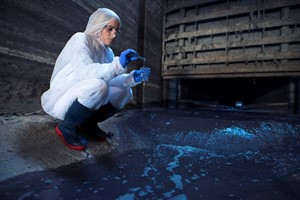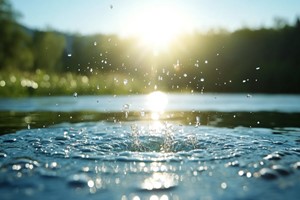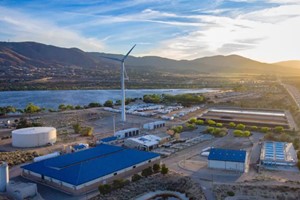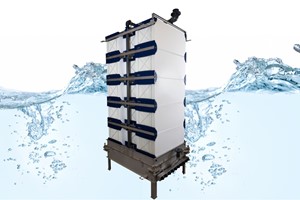Leaders from the African continent have demonstrated keen interest in pioneering water treatment technologies during their recent visit to a South Korean AI water purification plant. Hosted by K-water, the Korea Water Resources Corporation, discussions centered on collaborative ventures in advanced water treatment technology.
High-Level Engagements and Advanced Technologies
K-water’s state-of-the-art facility in Hwaseong, employing sophisticated artificial intelligence, welcomed the Presidents of the Central African Republic, Madagascar, and Mauritius. Their visit coincided with the Korea-Africa summit, aiming to identify solutions to the water-related challenges exacerbated by the climate crisis.
The tour provided an opportunity for these leaders to witness South Korea’s advanced water management and AI technology firsthand. The President of Madagascar expressed particular interest in collaboration, aiming to combine governmental funds with European Union resources and Korean assistance to tackle their nation's water issues.
Potential Partnerships and Future Collaborations
A prospective partnership between K-water and Madagascar is on the horizon, with plans to engage in detailed discussions to refine collaborative strategies. This initiative is seen as a catalyst for broader Korean business involvement in global water infrastructure projects, particularly in Africa.
The Hwaseong AI plant, operational since 2018, exemplifies digital transformation in water management. It features autonomous operations and real-time power consumption analytics, supplying both daily living and industrial water to multiple cities. This facility is notably the first of its kind in South Korea and stands as a model of efficiency and reliability.
Addressing Global Water Challenges
Water scarcity and quality are critical global issues, particularly for many African nations where access to safe drinking water and efficient water management systems is often limited. South Korea’s advancements in the water sector provide a model that African countries could emulate or collaborate with to enhance their own water treatment infrastructure.
Key Insights and Implications
Why are African leaders interested in Korean AI-driven water solutions? African leaders are seeking efficient, sustainable ways to address the water supply and quality issues exacerbated by the climate crisis in their countries. South Korea’s AI-driven water treatment technology offers an innovative solution to these challenges.
What could a potential partnership between K-water and Madagascar involve? Such a partnership would likely involve implementing South Korean water treatment technology in Madagascar, leveraging governmental and international funds, including resources from the European Union, to improve the country’s water infrastructure.
Challenges and Controversies
Deploying advanced technology in countries with limited economic resources poses significant challenges. Concerns include high costs, technological compatibility, the need for local workforce training, and maintenance of new systems. Additionally, data privacy and security associated with AI technology in critical infrastructure can be contentious.
Advantages and Disadvantages
The advantages of AI in water treatment include enhanced efficiency, monitoring, and predictive maintenance, leading to better resource management and water quality. However, the disadvantages might involve high initial investment costs, the need for technical expertise, and potential dependency on foreign technology.
This landmark visit by African leaders to South Korea’s AI water purification plant underscores the global interest in advanced water management solutions. The potential partnerships forged during this visit could significantly impact water infrastructure projects in Africa, driving progress and innovation in addressing water scarcity and quality challenges.
By Kevin Topolsky














